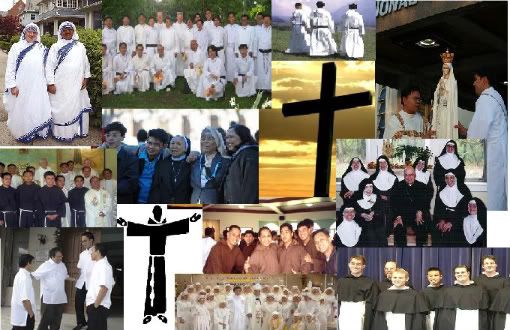Importance of Following a Vocation
There is no more important moment in the life of a young boy or girl than when “they stand with trembling feet” at the parting of the ways. With St. Paul they had said: “When I was a child, I spoke as a child, I thought as a child,” but the days of irresponsible childhood are gone forever, and now they must launch their bark alone on the stormy waters of life and steer their course of eternity. It is a solemn moment, a time big with possibilities for good or evil, for the youth is face to face with question what he must do with his future life, a choice upon which not merely his happiness on earth, but even his eternal salvation, may depend.
He has been made by his Creator and given a precious gift to spend it in a certain, definite way, marked out from all eternity by the hand of Divine Providence. What that life is to be for many, circumstances and surroundings clearly indicate. But in the hearts of others arises a violent storm from the clashing of rival interests.
On the one hand comes the call of the world, the pleading of human nature for a life of ease and pleasure; on the other, the Voice of Christ, softly yet clearly, “Come, follow Me – I have need of you – I have work for you to do.”
This, then, is the meaning of his life, the reason why he was drawn out of nothingness, “to work the works of Him Who sent Him.” Is he free to hesitate? Is it a matter of indifference for him to live in a God-chosen state of life or in a self-chosen one, now that his vocation is certain?
To this question St. Liguori answers: “Not to follow our vocation, when we feel called to the religious state, is not a mortal sin; the Counsel of Christ, from their nature , do not oblige under this penalty. However, in regard to the dangers to which our salvation is exposed, in choosing a state of life against the Divine Will, such conduct is rarely free from sin, much more so when a person is persuaded that in the world he places himself in danger of losing his soul by refusing to follow his vocation.”
Though one would not sin mortally by refusing to follow a clear vocation, since it is an invitation, not a command, a person would certainly run a great risk of imperiling his salvation by so acting. God foresees the temptations and dangers of each one; some He knows would never save their souls in the midst of a sinful world, and these He calls away to protect them from its dangers. To the vocation He has attached helps and graces to strengthen the weak soul, but deprived of this help -- for God may refuse to give them in the world the graces He would have granted in religion -- many will find salvation extremely difficult.
Hence, though the deliberate refusal to correspond to the vocation does not necessarily imply the commission of sin, even when the call is clear and unmistakable, yet it is a serious responsibility, without sufficient reason, to refuse to correspond to such an invitation, offered with so much love and liberality; for a vocation not only shows God’s eagerness for the sanctification of the person called to follow in His footsteps, but implies that the Savior looks for his constant co-operation in “the divinest of all works,” the salvation of human souls.
Can it be wondered at, then, that, deprived of the special graces destined for them, the lives of those who have refused to follow, or have abandoned, a decided vocation are generally unhappy, and, too often, as every confessor knows, sullied with great and numerous sins?








